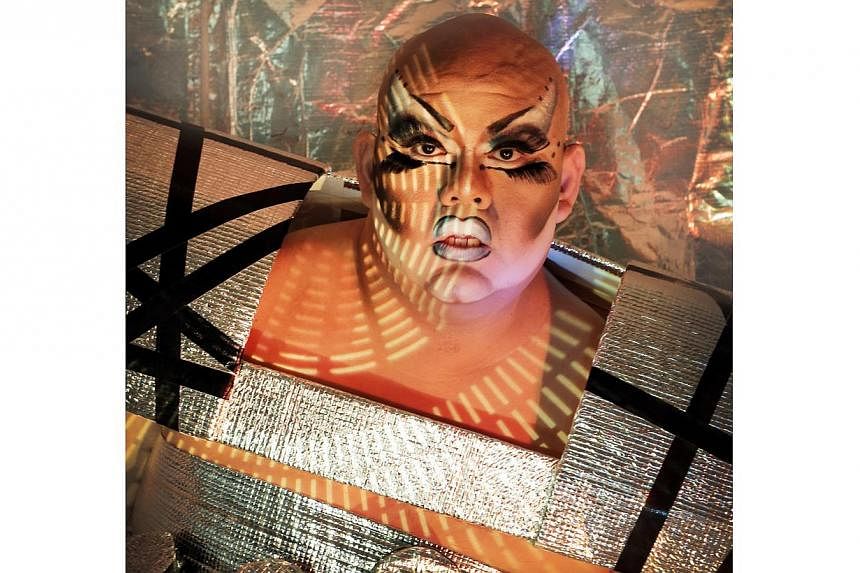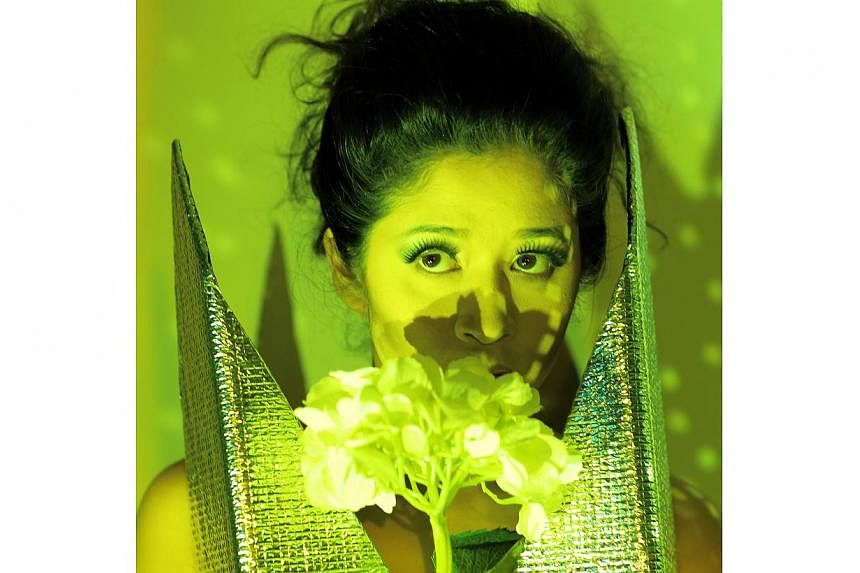Science fiction often helps us to look at the familiarity of our circumstances through an unfamiliar, reinvented lens. We pick our way through these unknown terrains while recognising something about the human condition - usually how it remains the same, how it cracks under duress, or how it triumphs over adversity. It is modern man's way of campfire storytelling, so to speak; the same way our ancestors might have gathered around a fire to imagine stories about the gods and stars.
Flimsy science fiction, I feel, exploits the genre for its fantastical aspects and uses these devices to distract the audience, or the reader, from a thin story. And, unfortunately, this is the sticky situation that Teater Ekamatra's English-language production Paradise finds itself in.
A shiny aesthetic makeover by performance artist and director Rizman Putra doesn't quite plaster over the cracks in playwright Zizi Azah's problematic script about a country, Kesamet, that has weathered an apocalypse and is left with a handful of survivors in an energy-creation factory. This energy, Orgone, can only be manufactured by men through a sexually-implied method. One of the frustrated drones in this factory is Dan (Crispian Chan), in search of a higher purpose.
There are attempts to look at some sort of gender and sexual constructs through this process (which is abstracted so that there is hardly anything sexual about it), but after a few running gags, the creative team promptly abandons what could have been an interesting subversion.
Told through a series of flashbacks, we discover that Dan had a wife, Mag (Munah Bagharib), lost in the fallout of some sort of unnamed apocalyptic event, and the story concludes with a twist visible from a mile away because of the way the scenes were plotted. Kesamet (read: Temasek, spelled backwards) is an allusion to Singapore so thinly veiled it could barely be described as a metaphor.
Kesamet's authoritarian leader, Sinan (Ang Hui Bin, creepy and charismatic against all odds), dispenses platitudes about nation-building that have been heard over and over again, whether in a dystopian context or not: "Reserves are very important!" she blusters, "We are the chosen survivors!" Likewise, the characters are all cardboard archetypes, each standing for diametrically opposing ideas, pitting those who want to maintain the status quo with those who want a rebellion, those who want safety and those who hunger for risk.
All due credit must go to the extremely hardworking cast, who did commendable work with whatever shreds of believability they could work with. I wished they could have sunk their teeth into more three-dimensional characters. Performer Eugene Tan, as his drag alter ego Becca D'Bus, has an infectious, delightful presence and plays a sort of court jester character that is ripe with promise - but this is never further explored. Munah also throws herself into the enormous physical demands of her twin roles of sweet wife and deranged, debased creature with great aplomb.
But they are let down by a script in desperate need of fine-tuning.
Sure, there are some moments of much-needed levity, pinpricks of light in all the murky chaos: Dan panics after the apocalypse and the black humour is stark - he wants to recover a suit he's left at the presumably destroyed drycleaners': "They know me there! Even though I don't have a receipt!" And Zizi has a poetic slant to her writing that sits nicely against the darkness of her story.
But on the whole, this tale tells us nothing we already know about the world we live in. It felt as though she had cobbled together as many science fiction tropes as she could find, ones that ought to work in a scifi dystopia: an apocalypse, drone-type workers in a factory, some sort of life force, a barren earth.
Unfortunately, all of these narratives have precedents that have done it better. Paradise treads on the domain of Aldous Huxley's Brave New World (class structures, mass production, influencing the subconscious, psychological manipulation), Frank Herbert's Dune (matriarchy, an encroaching desert, gender politics), Joseph Kosinski's Oblivion (memory wipes, no individual agency, post-apocalyptic romances), and Richard Fleischer's Soylent Green (human bodies as energy).
While so much of good art is borrowed and sampled and re-used, the best of it brings new insight to an old story. Here, sadly, we see something old, something borrowed - but not something new.
Follow Corrie Tan on Twitter @CorrieTan
Book it
PARADISE
Where: Drama Centre Black Box, National Library Building, Level 5
When: Dec 5 (Fri) and Dec 6 (Sat), 8pm; Dec 6 (Sat) and Dec 7 (Sun), 3pm
Admission: $35 from Sistic (call 6348-5555 or go to www.sistic.com.sg)





